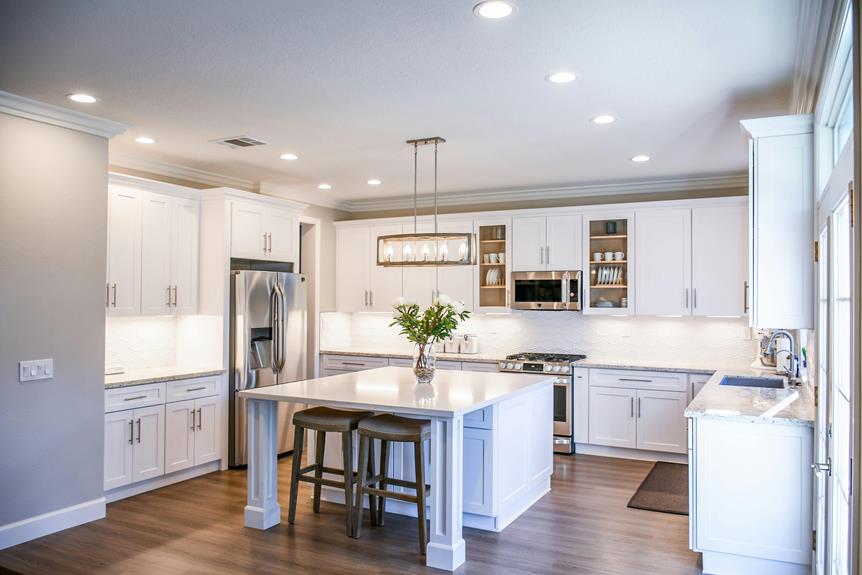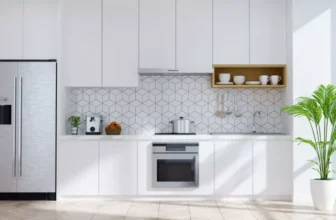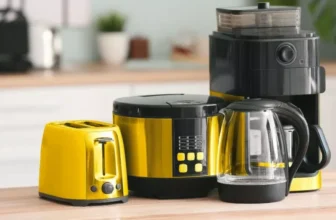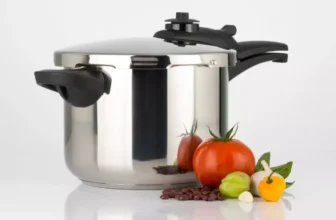
If you're contemplating whether smart kitchen appliances are worth the upgrade, consider this: the convenience and efficiency they offer might just surprise you. With features designed to streamline your cooking experience and save you time, these appliances could revolutionize your kitchen routines. But before you dismiss them as mere gadgets, let's explore a few key aspects that might sway your decision.
Cost Efficiency of Smart Appliances
If you're considering investing in smart kitchen appliances, you might be wondering about their cost efficiency. Smart appliances can be a bit pricier upfront compared to traditional ones. However, in the long run, they can lead to cost savings. These appliances are designed to be energy-efficient, which can result in lower utility bills over time. For example, smart refrigerators can optimize cooling cycles based on usage patterns, saving energy and reducing electricity costs.
Moreover, smart appliances can help you minimize food waste. With features like inventory tracking and expiration date reminders, you can avoid buying unnecessary groceries and throwing away expired items. This can lead to significant savings on your grocery bills each month.
Additionally, some smart appliances offer rebates or discounts on energy bills, further enhancing their cost efficiency. By taking advantage of these incentives, you can offset the initial investment cost and enjoy smart technology while saving money in the process. So, while the upfront cost may seem high, the long-term cost efficiency of smart kitchen appliances can make them a worthwhile investment.
Convenience and Time-Saving Features
Investing in smart kitchen appliances brings a new level of convenience and time-saving features to your daily cooking routines. Imagine being able to preheat your oven on your way home from work using your smartphone or asking your smart assistant to add items to your grocery list as you run out of them.
Smart appliances like refrigerators with cameras allow you to check what you have while at the store, saving you from making multiple trips. These devices can also suggest recipes based on the ingredients you have on hand, making meal planning a breeze.
Smart coffee makers can brew your coffee as soon as you wake up, ensuring you start your day right on time. With automated cooking functions, such as precise temperature control and timers, smart kitchen appliances take the guesswork out of meal preparation, allowing you to multitask or relax while your appliances do the work for you.
Integration With Smart Home Systems
When considering smart kitchen appliances, the integration with smart home systems enhances your overall cooking experience with seamless connectivity and control. By connecting your smart appliances to your home network, you can remotely monitor and control them using your smartphone or smart home assistant. Imagine preheating your oven on your way home from work or receiving notifications when your dishwasher cycle is complete. This level of integration allows for greater convenience and flexibility in managing your kitchen tasks.
Moreover, smart home systems can enable your kitchen appliances to work together harmoniously. For instance, your smart refrigerator can notify your smart oven of the ingredients you have inside, prompting personalized recipe suggestions or preheating recommendations. This interconnectedness streamlines your cooking process and enhances efficiency.
Furthermore, integrating your kitchen appliances with your smart home ecosystem can lead to energy savings. You can schedule appliance usage during off-peak hours or receive insights into your energy consumption, empowering you to make informed decisions that benefit both your wallet and the environment. The integration with smart home systems truly elevates the functionality and utility of your kitchen appliances.
Potential Drawbacks and Considerations
Considering potential drawbacks and considerations when upgrading to smart kitchen appliances is crucial for making informed decisions about your investment.
While the allure of convenience and efficiency is strong, there are factors to keep in mind before diving into the world of smart appliances.
Firstly, one major consideration is the initial cost. Smart kitchen appliances tend to come with a higher price tag compared to their traditional counterparts. This upfront investment may not fit everyone's budget, so it's essential to weigh the cost against the benefits you expect to gain.
Another drawback to keep in mind is the potential for technological glitches. Just like any other electronic devices, smart appliances can encounter software bugs or connectivity issues, which could disrupt their functionality. Being prepared for troubleshooting or seeking technical support is necessary to avoid frustration.
Lastly, privacy and security concerns are valid worries with smart appliances. Since these devices are connected to the internet, there's a risk of data breaches or unauthorized access to personal information. Ensuring that you understand the privacy policies and security measures in place can help mitigate these risks.




